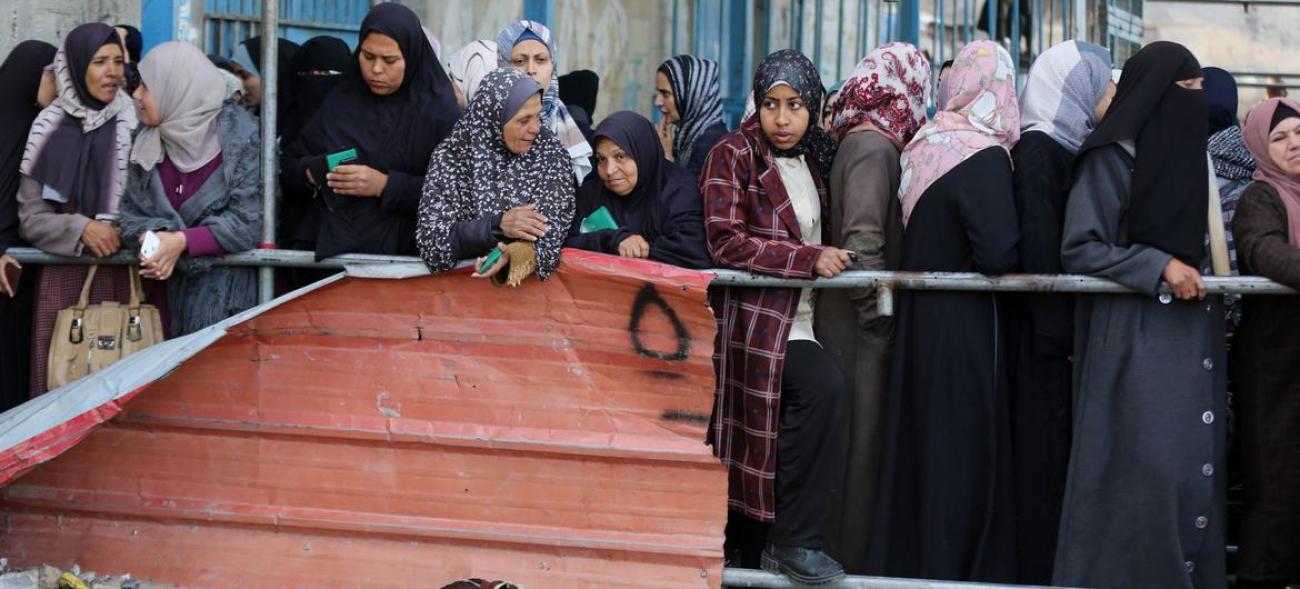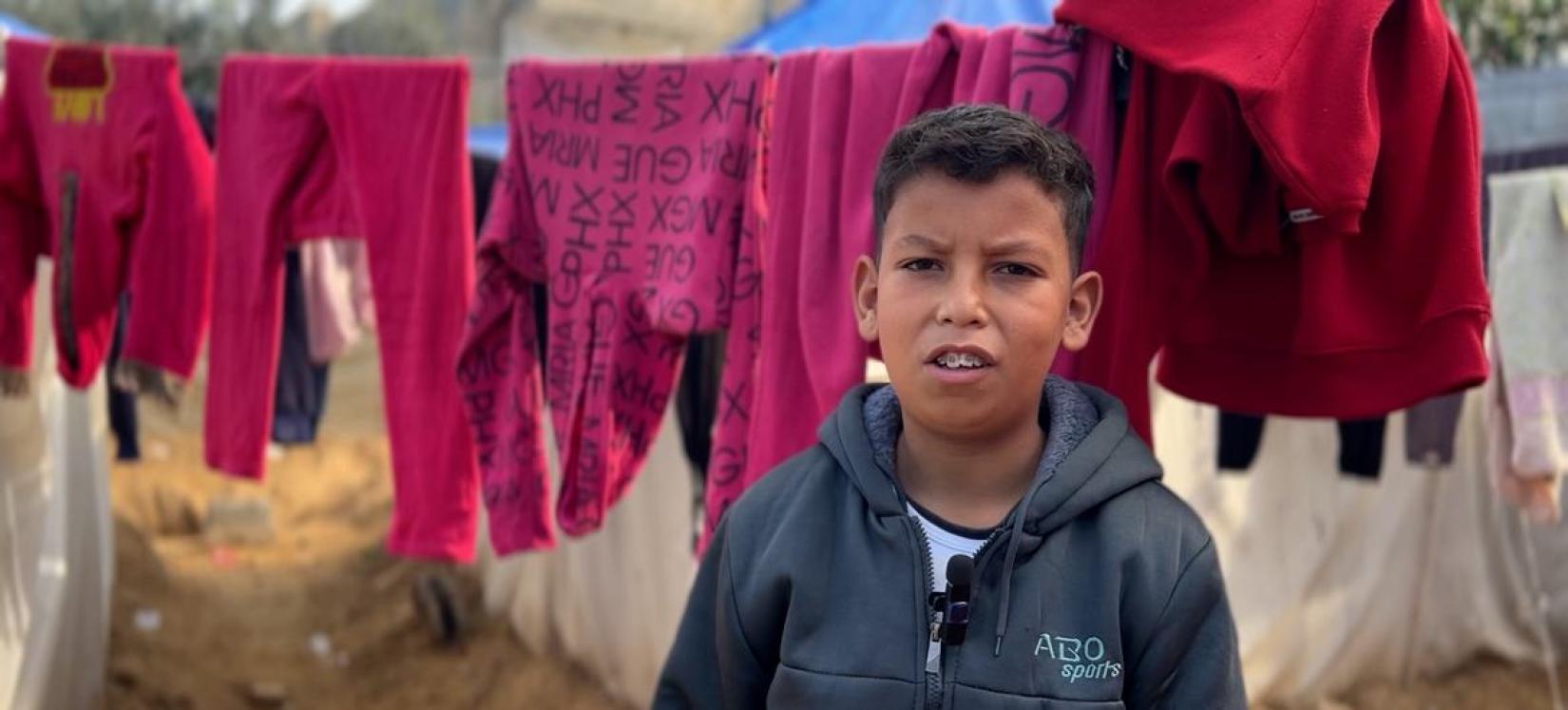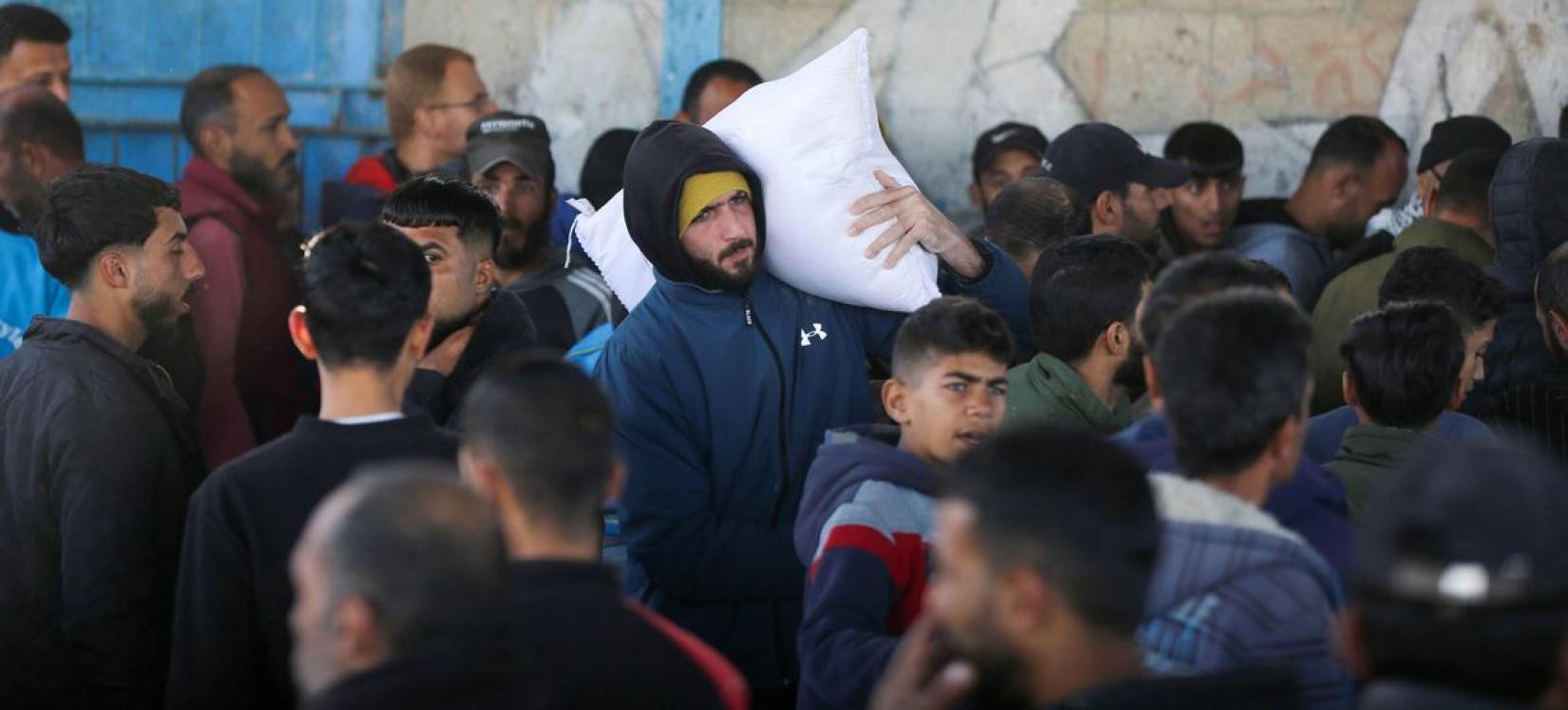‘Enough death and destruction’: Gazans hope for ceasefire and a better future

Displaced Gazans – ground down by 15 months of devastating conflict – have told UN News they hope an end to their suffering is in sight.
In the wake of Wednesday’s announcement of a ceasefire deal between Israel and Hamas due to come into effect on Sunday, displaced Gazans – ground down by 15 months of devastating conflict – have told UN News they hope an end to their suffering is in sight.
Around 90 per cent of the population across the Gaza Strip have been displaced from their homes, forced to move to avoid Israeli military operations. Many have been displaced repeatedly, some 10 times or more.
Much of Gaza is rubble, while Israeli airstrikes and military operations have damaged or destroyed around 60 per cent of buildings, including homes, schools and hospitals. The relentless bombing campaign has pushed healthcare to the brink, the solid waste system has collapsed, causing serious environmental and health risks, and the water system has been drastically cut.
UN News’s correspondent in Gaza has been speaking to displaced civilians sheltering in Nuseirat, central Gaza, who are hoping to return to what is left of their homes and rebuild their lives.
Despite the critical humanitarian conditions, um Mohammed Hanoun is determined to go back to the Al-Karama neighborhood in northern Gaza with her family, even though she received news that her house had been destroyed in a drone attack.
"My plan is to remove the rubble, set up a tent on my land, and live there,” she said. “All I care about is seeing my home. I hope that Gaza will be rebuilt to the way it was, and that our lives will return to what they were."
‘We deserve a better life than this’
"I want to go back to Gaza City for one reason, and that's to see my father," says Sami Abu Tahoun, a child displaced from Gaza City, after receiving news of the ceasefire agreement – which on Thursday was still in doubt as the Israeli war cabinet failed to vote on the deal.
The youngster says that he had not seen his father since the conflict forced them to leave Gaza City, in the northern party of the Strip. "When we left our home, I lost something essential in life, my father. When my mother asked me to pray, I refused. I wanted to wait until I could pray with my father."

‘Enough death and destruction’
"We want to think now about our future. Enough death and destruction,” says Ayman Abu Radwan, a Palestinian man who, like Sami, had to leave his home in Gaza City for central Gaza for a tattered tent.
“We are tired. We have endured the full heat of summer, and the frost and cold of winter. Children are dying. Every night, I am woken up by the cries of a two-week old baby shivering from the cold. I hope that our conditions will improve. We deserve a better life than this.”
Even if a halt in the hostilities allows Gazans to return home, and for the Strip to be rebuilt, the mental suffering will continue, according to Mohammed al-Quqa, who was displaced from al-Shati refugee camp west of Gaza City.
“The greatest suffering will be the psychological situation. The war has been long, and our families, our children, have witnessed things they should never have seen.”
UN humanitarians poised to deliver surge of aid
If the ceasefire agreement comes into effect on Sunday, there is widespread anticipation that aid coming into the Strip will significantly increase – in line with the reported terms of the deal.
Throughout the conflict, humanitarian convoys containing desperately needed supplies have repeatedly been delayed or denied entry at Israeli military checkpoints (in December, 70 per cent of coordinated aid missions were denied).
On Thursday, The World Food Programme (WFP) announced that it has 80,000 tons of food is waiting outside Gaza or on its way in, enough to feed more than one million people.
However, the UN agency also underscored the importance of humanitarian teams and supplies enjoying unrestricted movement to reach those in need.

UNRWA focuses on essential healthcare
The healthcare system in Gaza has been shattered as a result of persistent Israeli bombardments, and more than 12,000 people are awaiting medical evacuation.
On Wednesday the World Health Organization (WHO) and its partners succeeded in evacuating 12 patients to hospitals in Europe, but the agency is calling for many more countries to receive specialized treatment, as and when the ceasefire takes hold.
Aid workers have been operating under perilous conditions: almost 900 have reportedly been killed since October 2023, including 265 staff from the UN refugee agency for Palestine refugees, UNRWA.
Despite the risks, more than 1,000 UNRWA workers – the vast majority of them local staff – continue to operate health centres, temporary clinics and medical points across Gaza, providing more than 16,000 health consultations per day.

